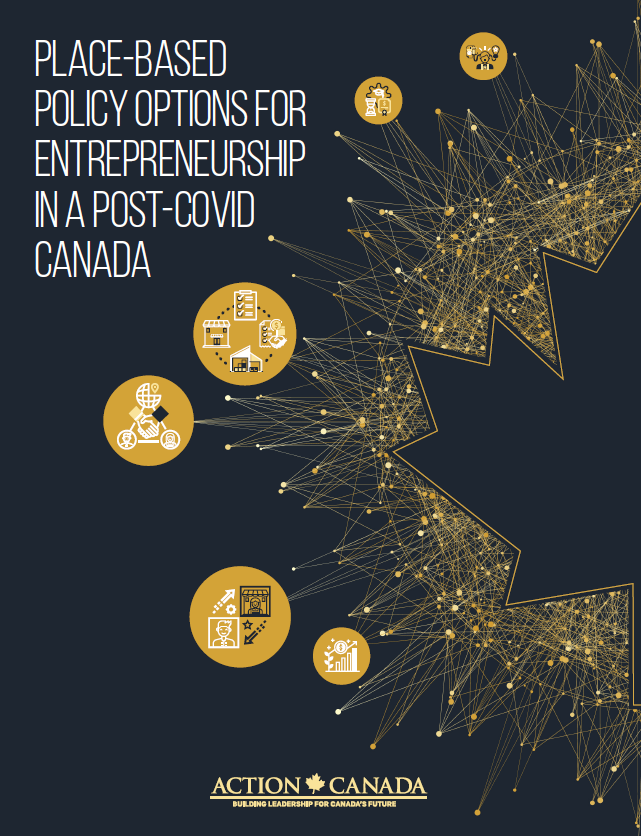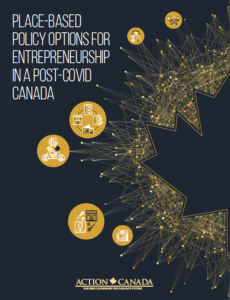
Place-Based Policy Options for Entrepreneurship in a Post-COVID Canada
An Action Canada ReportIn this report, we advocate for six policy options that move Canada’s entrepreneurship and small business supports from strength to strength. They do so by leveraging and working within existing structures, policies, and priorities in a manner that can address numerous goals at the same time. In setting out these options, we have attempted to craft policies that offer a place-based framework responsive to local assets, opportunities, and priorities across Canada, without being prescriptive about the innumerable aspirations and opportunities that dot the map.
While recognizing a strong cultural and fiscal foundation for entrepreneurship which will follow Canada into its period of recovery, our proposals primarily support three dimensions of a healthy entrepreneurial ecosystem—human capital, market access and institutional support. We address these through six enabling policies, which can be summarized as follows:
Read their presentation from March 12, 2021.
Recommendation #1: We recommend that entrepreneurship and small business support programming be designed and delivered in a “bottom-up”, intergovernmental structure in order to be more responsive to local economic needs. We propose to do this through the creation of new, regionalized economic development entities, which are funded by federal, provincial and territorial governments to implement economic development, small business, and entrepreneurship support programming based on localized strategic plans.
Recommendation #2: We recommend that Canada’s skills development and continuous learning goals for small businesses and entrepreneurs be addressed by incorporating micro-credentialing into government grants and financing for businesses, as a condition or requirement.
Recommendation #3: We advocate for the expansion of existing immigration programs to create a specialized stream dedicated to business succession—and to connect business owners in rural and remote communities with newcomer talent.
Recommendation #4: We recommend that government student loan borrowers be permitted to defer their repayments and pause interest accumulation for a period of five years in order to enable marginalized youth to engage in entrepreneurship.
Recommendation #5: We propose the creation of a new stream under the federal Youth Employment and Skills Strategy to provide placements for youth in ex-urban small businesses in order to facilitate reverse mentorship and skills development.
Recommendation #6: We call for federal, provincial, and territorial governments to craft policies that cause local-level public purchasers to develop entrepreneurship- and small business-focused procurement policies. We suggest, as a starting point, that the requirement for such social procurement goals be mandated as a condition for municipalities to receive funding under the federal Gas Tax Fund.









